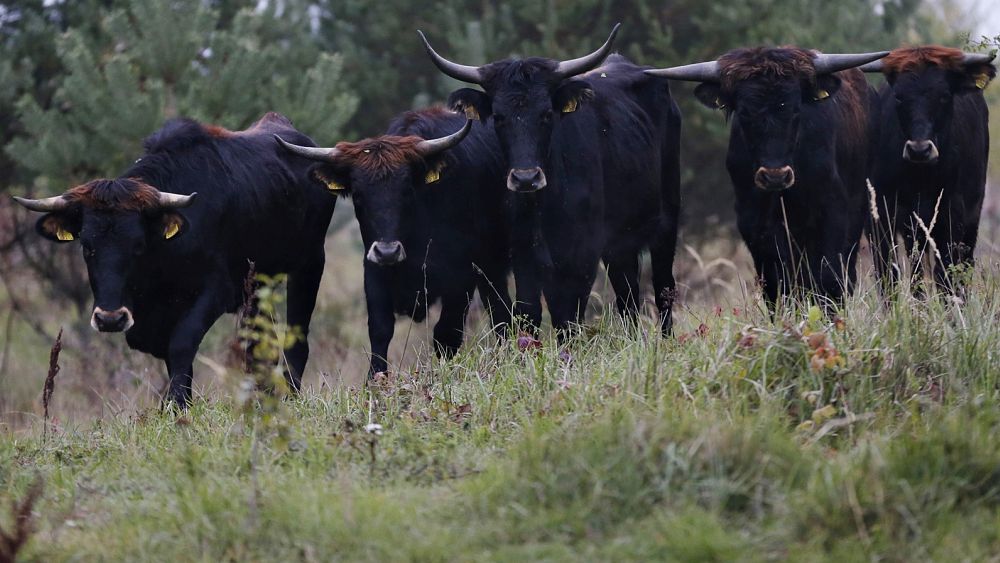
The European Parliament’s environment committee on Tuesday voted down an amended version of the Nature Restoration Law.
After going through a long series of amendments, the text as a whole received 44 votes and 44 against, meaning it failed to garner the necessary simple majority by one single vote.
The tally prompted a mix of applause and jeers inside the room, a vivid reflection of the stark ideological divide prompted by the law.
It marks the first time the parliament’s environment committee (ENVI) rejects an element of the European Green Deal. Previously, two affiliate committees, agriculture (AGRI) and fisheries (PECH), had struck down the text.
As a result, the legislation will be sent to plenary in its original form, as proposed by the European Commission. MEPs will still be able to table amendments before the final vote, expected to be held in the week of 10 July.
If the hemicycle mimics the 88-member committee, lawmakers will not be able to enter negotiations with member states, which have already agreed on a common position, and the law will be effectively dead.
Tuesday’s knife-edge vote took place amidst a political atmosphere of unprecedented hostility against the draft piece of legislation.
Over the past months, the centre-right European People’s Party (EPP), the largest formation in the parliament, has mounted an incessant negative campaign against the Nature Restoration Law, which the group sees as a direct threat to the traditional livelihoods of European farmers, fishers and forest managers.
The EPP describes the law as a case of “good design, bad intentions” and says its legally-binding targets to rehabilitate land areas will disrupt supply chains, decrease food production and raise prices for everyday consumers.
“We cannot just sign a blank check if a law is flawed,” the EPP said on Tuesday morning, asking once again for its total withdrawal.
The claims put forward by the conservatives have been forcefully contested by progressive parties, environmental NGOs, climate scientists and the renewable energy industry, which argue nature restoration and economic activity are two compatible goals that can thrive side by side.
An increasingly large number of private companies have also backed the law.
Earlier this month, CEOs and top executives from 50 companies, including IKEA, Nestlé, H&M, Iberdrola and Unilever, signed a joint letter urging lawmakers to “urgently” adopt rules on nature restoration to create legal certainty for businesses, ensure fair competition and foster innovation.
“Our dependence on a healthy environment is fundamental to the resilience of our economies and, ultimately, our long-term success,” the CEOs wrote.
What is the Nature Restoration Law?
The Nature Restoration Law was first presented by the European Commission in June 2022 as part of the European Green Deal and the 2030 biodiversity strategy.
The legislation, referred to as the “first continent-wide, comprehensive law of its kind,” aims to rehabilitate habitats and species that have been degraded by human interference and climate change.
According to the Commission, 81% of European habitats are in poor status, with peatlands, grasslands and dunes hit the worst.
The law sets out legally-binding targets in seven specific topics, such as farmlands, pollinators, free-flowing rivers and marine ecosystems, that put together should cover at least 20% of the EU’s land and sea areas by 2030.
The target was later boosted to 30% in order to align the bloc with the landmark deal that was achieved in December at the end of COP15 in Montreal.
Under the legislation, member states would be asked to draft long-term plans on nature restoration, laying out the projects and initiatives they wish to pursue in order to meet the overarching targets.
Possible actions include planting trees, beekeeping, rewetting drained peatlands and expanding green spaces in urban areas.
Upon its presentation, the Nature Restoration Law was well received by environmental organisations, which hailed the legally-binding targets and the far-reaching scope, but triggered a significant backlash from farmers, fishers and foresters, who later called it an “ill-thought out, unrealistic and unimplementable” proposal bound to have “devastating consequences.”
The EPP built upon this reaction to launch its opposition campaign, which critics say is heavily influenced by the upcoming European elections and the emergence of the sudden rise of BBB, the agrarian populist party that has disrupted Dutch politics.
